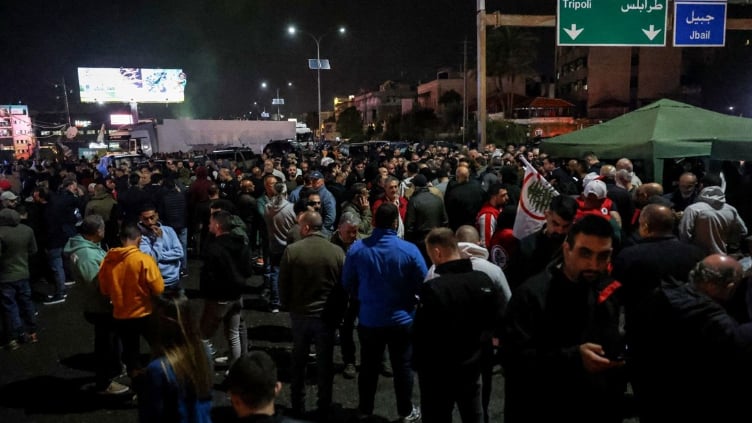Lebanon-Syria relations have always been a hot-button issue dividing the Lebanese population. The neighbouring countries have long failed to build relations on principles of equality and respect, with their problems compounded by internal Lebanese politics.
Mount Lebanon had been autonomous since the 19th century. After the collapse of the Ottoman Empire near the end of World War I and the failure of the Great Arab Revolt to build an Arab state with Damascus as its capital, the French mandate in implementation of the Sykes-Picot Agreement finalised separation of the two countries with the declaration of Greater Lebanon in 1920.
The common geography or the similar social structures have not helped revert the French decision that was based on granting support to the Christian community, specifically the Maronites, in Lebanon. Lebanese Christians sent delegates to the Paris Conference asking the French to control Lebanon, which gained its independence in 1943 and French troops withdrew in 1946. This opened a new chapter in Lebanon’s foreign relations, particularly with Syria.
As Lebanon liberalised its economy and benefited from the Arab boycott of Israeli-occupied Palestinian ports after the proclamation of the state of Israel in 1948, Syria was hit by a series of coup attempts, jeopardising the country’s stability and leading to a more centralised economy.
This economic split was compounded by a Syrian boycott of Lebanon in 1950 and its decision to establish its own central bank and an independent local currency. Borders between the two countries were closed on several occasions, notably during the 1958 revolt in Lebanon, after which Lebanese President Camille Chamoun invited the US Marines in to settle the strife.
The turning point, however, was Syria’s military intervention in Lebanon, beginning in 1976 and ending in 2005. During this period, Syria was the tutelage authority that practically ran the show in the country, especially after the Taif Agreement in 1990.
When the Syrian revolution erupted in 2011, the Syrian government did not refrain from interfering in Lebanese affairs. In 2016, one of the country’s prominent agents, former Lebanese minister Michel Samaha, was sentenced to 13 years in prison for smuggling bombs from Syria to Lebanon for suicide attacks on mosques and attempting to establish a terrorist group that would plan assassinations of Lebanese leaders antagonistic to the Syrian agenda.
.png)
After Russia’s intervention in Syria to rescue the regime and the United States’ withdrawal from the country, the Damascus government again has the upper hand and is turning its attention back to Lebanon.
Lebanese Prime Minister-designate Saad Hariri has been unable to form a cabinet after eight months in office and it seems as though the mission is impossible. Every time negotiations seem to make progress, a new impediment is introduced by Syria’s affiliates in Lebanon to avert the final product.
Most notable was the alliance between two fiercely antagonistic Druze politicians, Talal Arslan and Wiam Wahhab, both allied with Syria, to corner the strongest Druze leader, Walid Jumblatt, a staunch critic of the Syrian regime.
The two politicians enraged the Druze community, first by refusing to hand in a bodyguard accused of murder and second by organising rallies in front of Mukhtara, Jumblatt’s hometown and centre of power.
Lebanese President Michel Aoun invited the dissident Druze cleric Sheikh Nasreddine al-Gharib along with the sect’s official spiritual leader, Sheikh Naim Hassan, to the Arab Economic Summit in Beirut, further inflaming tensions among the Druze.
Aoun and his-son-in-law, Foreign Minister Gebran Bassil, also angered Gulf countries by seeking to invite Syria back into the Arab League and then into the Arab summit but their efforts failed.
With the Syrian regime seemingly back on track, Lebanon fears it could once again become the playground, or even battlefield, of regional conflicts. Indeed, as long as Lebanese factions preserve their external affiliations, Lebanon will remain a compromised nation.





